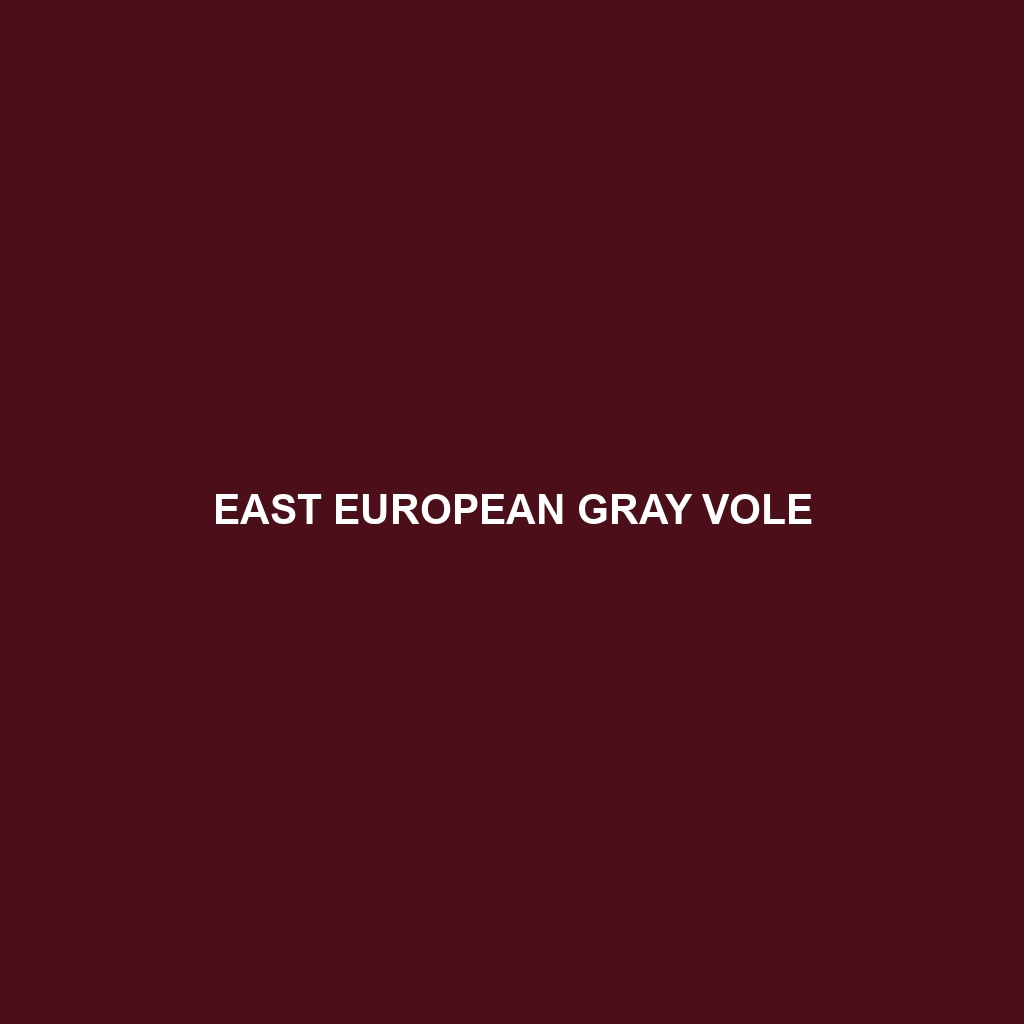Species Description: Portuguese Field Vole
Common Name: Portuguese Field Vole
Scientific Name: Microtus duodecimcostatus
Habitat
The Portuguese Field Vole is primarily found in southern Europe, particularly in regions of Portugal and western Spain. This species thrives in moist grasslands, meadows, and agricultural fields, often near water sources. Their preferred habitats are characterized by dense vegetation, which provides cover and foraging opportunities.
Physical Characteristics
Portuguese Field Voles are small rodents with a body length ranging from 10 to 15 cm (approximately 4-6 inches). They have a rounded body, short legs, and a slightly flattened head. Their fur is generally brown or grayish, often with a lighter underbelly. A distinctive feature of the Portuguese Field Vole is its slightly tufted ears, which are small and hard to see, helping them blend into their grassy environments.
Behavior
This species is primarily nocturnal, exhibiting increased activity during the evening and nighttime. Portuguese Field Voles are known for their burrowing behavior, creating extensive tunnel systems underground. They are social animals, often found in groups, which aids in foraging and predator avoidance. During the day, they may remain hidden in their burrows or dense vegetation to escape from natural predators.
Diet
The diet of the Portuguese Field Vole mainly consists of grasses, herbs, and seeds. They are herbivorous and often forage near their burrows to minimize exposure to predators. Their feeding habits play a vital role in shaping the vegetation of their habitat, making them important contributors to the ecosystem.
Reproduction
Portuguese Field Voles have high reproductive rates, with breeding occurring year-round, although peak breeding seasons can occur in spring and early summer. A female can give birth to multiple litters each year, with an average of 4 to 6 young per litter. Offspring are altricial at birth, relying on maternal care for the first few weeks before they begin to venture out and forage on their own.
Conservation Status
The Portuguese Field Vole is currently classified as Least Concern by the IUCN, indicating that it is not facing immediate threats to its population. However, habitat destruction due to agricultural expansion and urban development could pose risks in the future.
Interesting Facts
Portuguese Field Voles have a unique ability to adapt to varying environmental conditions. They can survive in disturbed habitats, making them resilient in changing landscapes. Additionally, they are an essential food source for various predators, including birds of prey and small mammals.
Role in Ecosystem
As herbivores, Portuguese Field Voles play a crucial role in the ecosystem by aiding in plant population control and soil aeration through their burrowing. Their presence is vital for maintaining soil health, and they serve as prey for numerous predators, thereby contributing to the overall biodiversity of their habitats.

